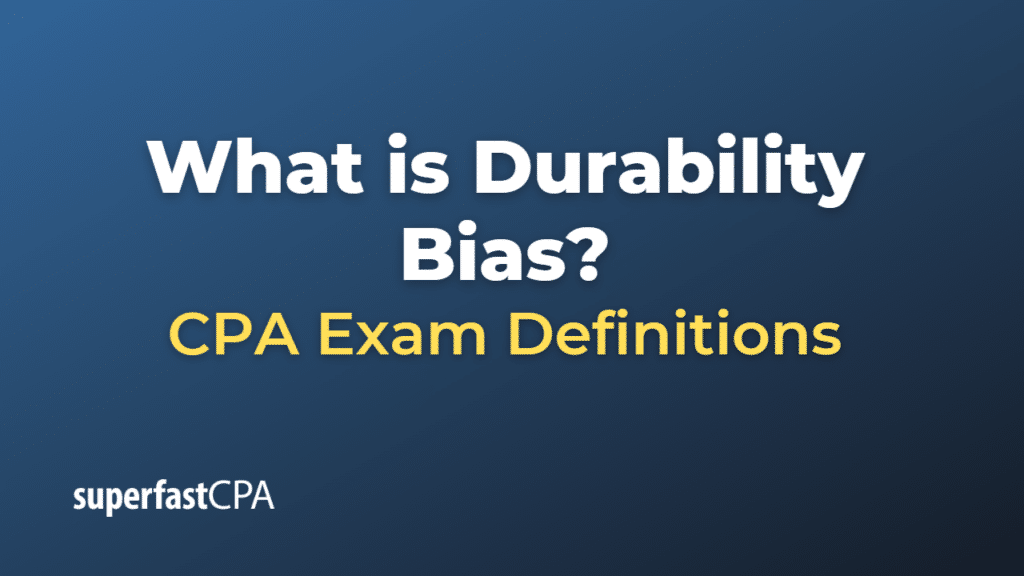Durability Bias
Durability bias, also known as the impact bias, is a cognitive bias where people tend to overestimate the duration of their emotional reactions to future events. This is a concept in behavioral economics and psychology that was defined by researchers Daniel Gilbert and Timothy Wilson.
In other words, we generally believe that our happiness or sadness due to a certain event will last longer than it actually does. For example, we might think that buying a new car or getting a promotion will make us happy for a long time, but in reality, we adapt to these new situations faster than we expect and the emotional impact diminishes.
This is partially due to a process called hedonic adaptation, which is the tendency for humans to return to a relatively stable level of happiness despite positive or negative changes in life circumstances.
Durability bias can influence our decision-making and potentially lead us to make choices that don’t maximize our long-term happiness or satisfaction. It’s important to be aware of this bias when planning for the future or making major decisions.
Example of Durability Bias
Let’s consider a scenario related to career decision-making:
Suppose there is a person named Alex who is currently unhappy in his job. He believes that if he could only get a promotion, he would be perpetually happy and satisfied with his work life. This belief motivates him to work incredibly hard, and he eventually earns the promotion he wanted.
According to durability bias, Alex is overestimating how long the happiness from this promotion will last. While he may experience a surge of joy and satisfaction initially, it’s likely that these feelings will diminish over time as he adjusts to his new role and responsibilities. This process is known as hedonic adaptation.
After a few months, Alex finds that the promotion, while it brought more prestige and money, also brought more stress and longer working hours, and he starts to feel the same level of dissatisfaction as before. Despite his initial belief, the promotion didn’t lead to lasting happiness in his job.
This example illustrates how durability bias can lead us to overestimate the long-term emotional impact of our decisions. Being aware of this cognitive bias can help us make better decisions that take into account the likely reality of our future emotional state.













